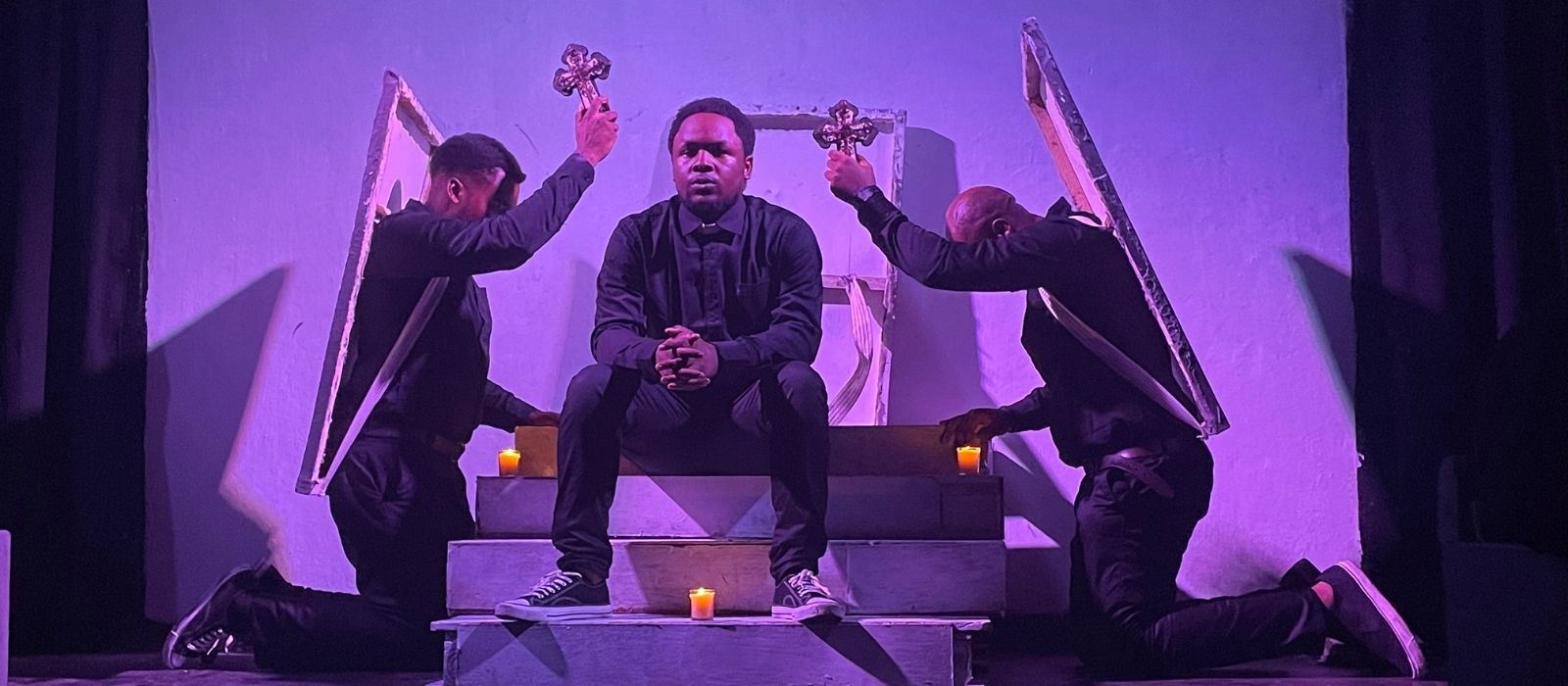
Jasen Mphepo Little Theatre, in association with Patsime Trust, a creative-oriented theatre organization based in Harare, Zimbabwe recently embarked on a nationwide tour using theatre as activism with their play ‘The Aftermath’. The aim was to challenge societal norms and advocate for reproductive rights in Zimbabwe, particularly regarding safe abortions.
The play premiered on May 7, 2024, at a high-profile event at the Jasen Mphepo Little Theatre in Harare. Attendees included civil society organizations, corporations, embassy officials, and government ministries, including Mr. Nicholas Moyo, Permanent Secretary of the Ministry of Sport, Recreation, Arts, and Culture, and the Brazilian Ambassador to Zimbabwe.
The national tour of ‘The Aftermath’ began in Mutare and concluded with its final performance at the Bulawayo Theatre in late June.
‘The Aftermath’ explores the devastating effects of denied choices through the story of Thomas Tafirenyika, a medical doctor, his wife Sarah, and the tragic death of their daughter, Plaxcedes. The play starts with the heart-wrenching event of Plaxcedes’ death, which profoundly impacts Thomas and Sarah, leading to tension as they grapple with their grief. Thomas blames Sarah for failing to save their daughter, while Sarah blames Thomas for neglecting Plaxcedes before the tragedy.
Directed by Norbert Makoche, the cast includes Farirai Clarence Borerwe, Henry Tapiwa Mutekede, Shingirai Manyengavana, Munashe Goromonzi, and Jasen Mphepo himself. Jasen Mphepo, also the producer and portraying Dr. Thomas Tafirenyika, expressed his personal connection to the play’s themes of sexual reproductive health rights and activism. “Development communication is close to my heart,” Mphepo said. “I love working on projects that create positive change for individuals.”
Mphepo then elaborated on his personal connection to the character’s struggles with reproductive choices. “I played the role of Thomas, a medical doctor whose daughter dies after an unsafe termination of pregnancy. Thomas is a stoic Christian who is pro-life and does not believe in abortion. However, in his medical practice, he frequently encounters women seeking terminations,” explained Mphepo.
“After his daughter’s death, his mindset and view of termination change. I resonate with this character because, as someone from the older generation, we were raised believing that terminating a pregnancy is evil. However, due to the impact of unsafe terminations caused by restrictive policies and lack of awareness, I now personally support access to safe terminations of pregnancy. I advocate for removing these restrictions and creating safe spaces for dialogue about abortion. This includes ensuring access to safe termination services,” said Mphepo.
Mphepo highlighted on how theatre can influence social change and discussions surrounding sensitive subjects like safe abortion. “Theatre plays a pivotal role in influencing change amongst the public by not only offering entertainment but by mirroring real life scenarios hence raising or prompting the not so obvious questions, thus creating a platform for conversation, engagement, learning, enquiry and seeking solutions to problems.”
Farirai Clarence Borerwe who features in the play, double casting as Honest and John, highlighted how the audience related to the messages presented in the Aftermath. ‘’One of the key aspects that audiences connected with was the relatability of the characters, particularly Plaxcedes, whose experiences and emotions echoed those of many in the audience. The well-crafted characters, including the pastor, Jude the lawyer, and Honesty the university student, each represented a segment of society, making the story even more engaging and authentic,’’ highlighted Borerwe.
Borerwe noted that the play’s exploration of universal themes such as love, loss, grief, and family disintegration struck a chord with audience members who have faced similar struggles in their own lives.
‘’The Aftermath explores universal themes like love, loss, grief and family disintegration. The play’s setting, which varied from a university to Dr. Tafirenyika’s house, church, and Jude’s office, provided an escape from reality, allowing audiences to immerse themselves in a new world and experience different perspectives. This imaginative and escapist element of the play added to its impact, making the themes and messages even more relatable and memorable,’’ noted Borerwe.
Dance and theatre practitioner Promise Munjoma shared her experience of how the play affected her as an audience member. “I felt that the play managed to showcase things that the society is afraid of discussing. The play addressed issues that I relate to, issues to do with sexual reproductive health rights, emotional and mental challenges of falling pregnant at a young age,’’ shared Munjoma.
Progress Mupikata who was part of the audience expressed how the messages from ‘The Aftermath’ can be applied in our everyday lives. “The play explored the issue of human rights and when we speak of human rights we speak about sexual violence in any form be it verbal, physical or mental. We speak of cultural norms, beliefs, patriarchal society, discrimination and stigma. The intersecting themes in the play creates a sense of community and social bonding among people,’’ said Mupikata.
State of Abortion in Zimbabwe
Statistics paint a grim picture of abortion in Zimbabwe. In 2021, Dr Ruth Labode, former chairperson of Parliament’s Portfolio Committee on Health and Child Care, reported a rise in illegal abortions, with numbers jumping from 60 000 to 80 000 annually.
The Termination of Pregnancy Act only permits abortion in three specific scenarios: when the mother’s life is endangered, there is a high risk of the fetus having a severe physical or mental defect, and in cases of rape or incest. The law prohibits unauthorized assistance with pregnancy termination. Abortion numbers have increased with desperate women turning to unsafe alternatives, such as illegal abortion pills and herbs, placing their lives at risk. Street vendors peddle illegal abortion pills and herbs, preying on women’s vulnerability with false assurances of safety. Backyard abortions performed by unregistered midwives or even de-registered or corrupt doctors become another dangerous and life-threatening recourse for desperate women. This situation highlights the ongoing struggle for women’s reproductive rights and bodily autonomy. The high number of unsafe abortions underscores the need for improved access to safe and legal termination services.



